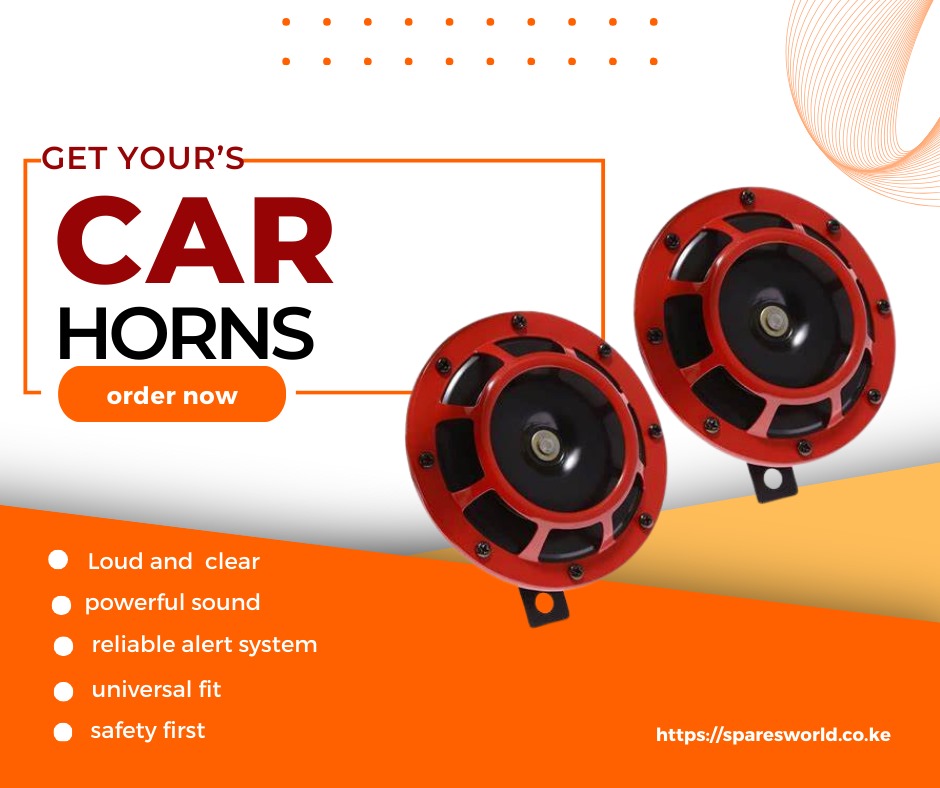Troubleshooting Car Horns: Common Issues and Fixes

Discover how to diagnose and fix common issues with your car horn to ensure it's loud and clear when you need it most.
Understanding Car Horn Mechanics and Basic Functionality
The car horn is an essential component of any vehicle, designed to alert other drivers and pedestrians of your presence. Typically located within the steering wheel, car horns use a relay to transmit an electric signal to the horn device, generating sound through a diaphragm mechanism. Understanding the basic functionality of your car horn can help you diagnose and address issues more effectively.
Car horns operate on a simple electrical circuit. When you press the horn button, it completes the circuit, allowing current to flow from the battery to the horn. The horn itself contains a diaphragm that vibrates to produce sound. These vibrations are amplified by the horn's structure, creating the loud noise we associate with car horns. Knowing these basics will give you a foundation for troubleshooting common problems.
Identifying Common Car Horn Problems
Several issues can cause a car horn to malfunction. One of the most common is a blown fuse, which interrupts the electrical circuit. Another frequent issue is a faulty relay, which can prevent the horn from receiving the necessary electrical signal. Corroded or disconnected wiring can also disrupt the circuit, while a worn-out horn button can fail to complete the circuit when pressed.
Another potential problem is a damaged horn diaphragm. Over time, the diaphragm can wear out or become damaged, reducing the horn's ability to produce sound. Additionally, environmental factors like moisture and dirt can corrode the horn components or connections, leading to performance issues. Identifying these common problems is the first step in troubleshooting and fixing your car horn.
Step-by-Step Guide to Fixing a Non-Functional Car Horn
To fix a non-functional car horn, start by checking the fuse. Locate the fuse box, usually found under the dashboard or in the engine compartment, and identify the horn fuse. If it's blown, replace it with a fuse of the same amperage. Next, check the horn relay, often located in the same fuse box. Swap it with a similar relay to see if that resolves the issue.
If the fuse and relay are in good condition, inspect the wiring connected to the horn and the horn button. Look for signs of corrosion, disconnection, or damage. Clean or reattach any loose wires, and use a multimeter to check for electrical continuity. If the wiring is intact, test the horn button by pressing it while using a multimeter to check for a closed circuit. If the button is faulty, it may need to be replaced. Finally, if all else fails, consider replacing the horn unit itself.
Tips for Maintaining Your Car Horn’s Performance
Regular maintenance can help keep your car horn in good working condition. Periodically check the horn's wiring and connections for signs of corrosion or wear. Clean any dirt or debris from the horn assembly to prevent it from affecting performance. Ensuring that your car's battery and electrical system are in good condition can also help maintain the horn's functionality.
It's also a good idea to test your horn regularly to ensure it's working correctly. If you notice any issues, address them promptly to avoid more significant problems down the line. Keeping your car's electrical system, including the horn, in good shape can help ensure your safety on the road.
When to Seek Professional Help for Car Horn Issues
While many car horn issues can be resolved with basic troubleshooting, some problems may require professional assistance. If you've checked the fuse, relay, wiring, and horn button, and the horn still isn't working, it may be time to consult a professional mechanic. They have the tools and expertise to diagnose and fix more complex electrical issues.
Additionally, if you're uncomfortable working with your car's electrical system or if the horn issue is beyond your skill level, seeking professional help is the safest option. A qualified mechanic can ensure the problem is correctly identified and fixed, restoring your car horn's functionality and ensuring your safety on the road.

 Loading..
Loading..